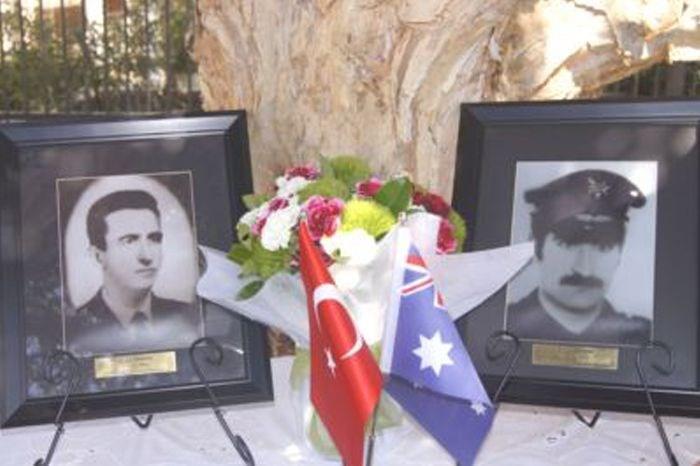
Turkey welcomed on Dec. 18 a move by Australia to reopen an investigation into the 1980 murder of two Turkish diplomats by an Armenian terrorist cell.
"This decision, giving hope, even though late, that justice will be ensured may reduce the pain of the relatives of the Turkish martyrs to some extent," the country's Foreign Ministry said in a statement.
On Dec. 17, 1980, at 9.45 a.m. local time, Turkish Consul General Şarık Arıyak and security attaché Engin Sever were shot outside Arıyak's home on Portland Street in Sydney by two Armenian terrorists.
While Arıyak was killed at the scene, Sever later succumbed to his wounds at a hospital.
“Since 1973, 58 Turkish citizens, including 31 diplomats and their family members, have lost their lives as a result of the terrorist attacks perpetrated by Armenian terrorist organizations named as ASALA, JCAG and ARA,” the ministry said.
"The majority of the investigations in the Western countries where the attacks took place were inconclusive and the cases remained unresolved.
"We expect other countries to take similar steps where inconclusive case files regarding martyred Turkish diplomats have been closed," it said.
"For the first time in Australia, a 1 million Australian dollar reward is offered for the capture of the perpetrators of a terrorist attack on the occasion of the 39th anniversary of the passing away of beloved Turkish martyrs," it noted.
The vast majority of the attacks were conducted by ASALA and the JCAG.
ASALA, founded in 1975, was the first Armenian terrorist group to wage war against Turkey.
It not only targeted Turkey but also other countries and became infamous for a 1975 bomb attack on the Beirut office of the World Council of Churches.
The JCAG was formed in 1975 in Beirut. However, it is nationalistic, not Marxist-Leninist like ASALA.
Claiming that it only received support from the Armenia diaspora rather than other foreign partners, JCAG only targeted Turkey because it believed that attacking other countries would damage the so-called "Armenian struggle."
It initially gained notoriety by claiming responsibility with ASALA for a 1975 attack on Danış Tunaligil, Turkey's ambassador in Vienna.